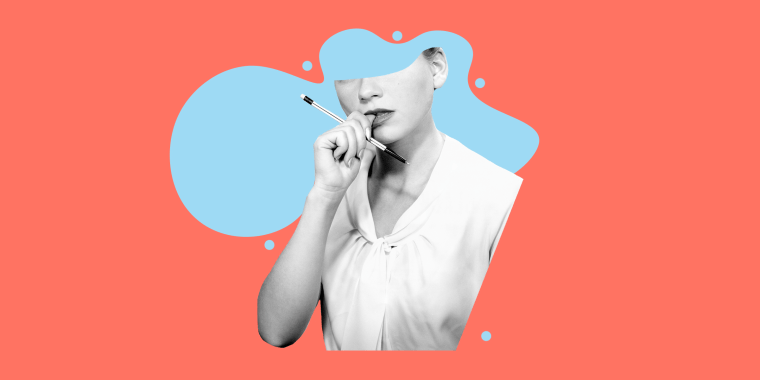A supplement found in any drug store’s vitamin aisle could help treat a problem that plagues both children and adults: habitual nail biting.
The option could be especially valuable in the era of COVID-19 when putting unwashed fingers into one’s mouth can put a person at risk for getting infected with the new coronavirus.
The supplement — N-acetyl cysteine or NAC — is an amino acid and antioxidant that’s available in pill form over the counter and is well tolerated, experts say.
It has certain effects on the brain that could help treat onychophagia — the medical term for chronic nail biting — which affects about 20–30% of the population, studies have found. The problem usually starts in childhood and can linger into adulthood.
Why is it so hard to stop biting my nails?
Researchers have called nail biting “a challenging disorder to treat” and a “conundrum for physicians.”
“For some people, it's very rewarding,” Dr. Jon Grant, professor of psychiatry and behavioral neuroscience at the University of Chicago, told TODAY.
“It can be a calming mechanism. It helps people self-soothe. It can help people kind of zone out.”
Some want their nails to look just right; others do it without any clear motivation whatsoever, he added.
Beyond being unhygienic and ruining the look of a person’s nails, chronic nail biting can damage the skin around them, increasing the risk of bacterial and fungal infection, said Dr. Adam Friedman, professor and interim chair of dermatology at the George Washington School of Medicine and Health Sciences.
It can also lead to dental problems as people chew on the hard keratin of a nail and put constant pressure on their teeth, causing small fractures at the edges of incisors, bone loss or gum inflammation.
Is there a cure for nail biting?
To help patients stop nail biting, dermatologists traditionally recommend applying a bad-tasting nail polish, Friedman said. Behavior therapy is another standard approach: People learn how to be aware of what triggers their nail biting — stress, for example — and then divert the energy into a healthier behavior such as squeezing a stress ball, Grant added.
“The reality, though, is that even with behavior therapy, we don't really have great data for any of it,” he said.
“Because most people who have the problem are embarrassed by it. They feel that they should have been able to stop it on their own. So people really don't come to see psychologists, psychiatrists or their primary doctors about their nail biting.”
Is nail biting a form of OCD?
Chronic nail biting can be described as part of the grooming disorders — such as hair pulling and skin picking — which may be tangentially related to obsessive compulsive disorder, Grant said.
That’s where NAC may help. Grant and his colleagues have been researching the supplement’s effect on habitual grooming disorders for almost 20 years. It’s thought people pull their hair and pick skin out of a sense of reward — they get something positive out of the behavior.
NAC seems to work by increasing an important neurotransmitter in the brain called glutamate, Friedman said. That may affect the reward center of the brain, taking out the person's need to find a reward from the problem behavior, Grant noted.
His studies found people who took NAC pulled their hair and picked skin less than those who took a placebo. Friedman said he’s had success in patients using the supplement for these parallel habitual conditions.
How to try NAC:
Research on NAC’s effect on nail biting specifically is more limited, but a recent review of studies found people with onychophagia who took the supplement ended up with longer nails and bit them less.
“I think it could be a very promising treatment,” Grant said. “It could be beneficial based on what we know about hair pulling and skin picking.”
“I say go for it,” Friedman advised people who’d like to try NAC for their nail biting problem.
Always ask your doctor before taking any new supplements, both experts said. Parents who want their kids to try NAC should have a discussion with their pediatrician first.
Based on his previous studies, Grant recommended taking a total of 2,400-3,000 milligrams of N-acetyl cysteine a day divided into two doses. NAC is excreted from a person’s system fairly quickly so it makes more sense to take it twice a day, he noted.
Friedman recommended 12 weeks of consistent use before deciding whether it is effective. At high doses, NAC can cause stomach upset, but overall it’s very well tolerated, he said.
Nail biters have been posting their success stories online, though Grant cautioned he wouldn’t expect NAC to help everybody with the problem. He recommended combining the supplement with behavior therapy to boost the chance of success.
“People still may need to learn how to channel whatever desire they have remaining (for nail biting) into healthier behaviors,” he said.



